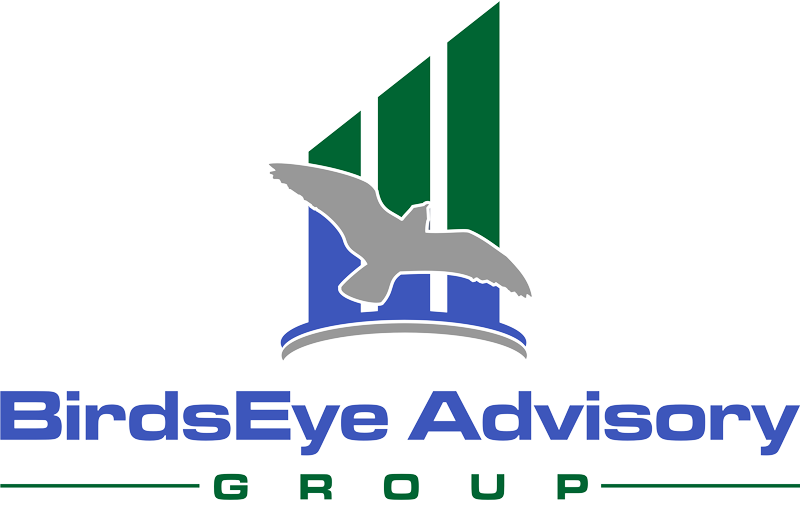The Top Five Things you can do NOW to increase the value of your business.
We are fortunate to make our living in an “essential” industry and I truly believe that our businesses will not only survive this crisis, but thrive on the back end because people have experienced the true emotional joy and connection that pets provide during difficult times.
However, during this extraordinarily challenging time, some of you might find yourselves with gaps in your calendar that would normally have been filled with social activities or dining out.
These gaps could be the perfect time to take a BirdsEye look at your business and assess whether your company has created the right systems, processes, and opportunities to achieve the best possible valuation for when you decide it is the right time to explore a sale or capital raise.
I’ve boiled my eleven years of selling pet companies down to what I believe are the five most important things you can do NOW to achieve maximum valuation down the road:
- PERSONNEL: Do you have the right people and are they in the right places?
Companies are ultimately about the people that work there and needless to say, the more good people you have at your firm, the more valuable it will be. Exceptional employees – especially in a revenue-generating role like Sales Manager or VP of Sales, can significantly heighten buyer interest.
If you have been carrying friends or family members on your payroll but they really aren’t the right fit, consider eventually replacing them with professionals who will help drive up the value of your company.
On the opposite end of the spectrum, I have also sold companies where the founder has his or her hands on every detail, and is in general is a larger-than-life persona. While a strong, visionary, engaged founder is a good thing, the pendulum can swing too far and the perception among buyers can be that the company is entirely dependent on this one person and their fear will be “what if this person gets hit by the proverbial bus?” In this scenario, it’s critically important that the founder has a “bench” (preferably “deep bench”) of other executives and managers around them that supplement his or her abilities and really form the basis of a “team” “as opposed to an “individual.
- PROCESS AND INFRASTRUCTURE: Do you have the right protocols and infrastructure in place that will permit your Company to grow and scale?
Invest in the business intangibles that don’t show up on your Balance Sheet but are big assets that drive company value such as:
- Robust new product development system and pipeline
- Up-to-date Operations Manual(s) detailing company processes
- Employee Handbooks/Manuals
- Quality control system
- Business systems – CRMs, automated marketing tools, business software
Much like a house needs a strong foundation to rest upon, your company must have infrastructure in place in the form of processes and controls. Buyers, whether strategic or financial, are nearly always interested in growth, and without the structure and processes in place, growth can be challenging… and not sustainable. Infrastructure is truly needed to scale a business.
- INNOVATE AND INVEST IN INTELLECTUAL PROPERTY: Create value through strong patents, trademarks, and copyrights.
Unfortunately, we work in an industry where innovative and creative ideas often get knocked off quickly. I experienced this first hand when I owned a manufacturing company and found myself immersed in multiple lawsuits with copycats. I am a HUGE fan of patents and have often been known to say that having a strong patent can sometimes be the difference between poverty and prosperity. If you’ve spent the time and resources to create a truly unique and valuable product, spend the extra time and money it takes to get a patent. Buyers put significant value on patents as it protects them from competition for many years to come.
- REDUCE CUSTOMER CONCENTRATION: The ultimate goal is that no one customer is more then 20% of your business.
While it may not seem like a big deal that 50% of your business is with one customer, many buyers will run screaming for the hills if your business has significant customer concentration. Why? Two main reasons: One is that there is risk that once they buy the company, they could lose that customer and they will end up overpaying for the business. The other is that banks are very hesitant to lend money for deals with customer concentration – they feel it is just too risky. A few years ago, we tried to sell a great company that had lots of fabulous qualities – but 80% of their business was with two customers. Ultimately, we couldn’t get a deal done for the reasons I just listed. A few years later, this same company had reduced this concentration to less than 50%, and a deal got done.
If you fall into this category, I would recommend starting the process of trying to diversify your customer base as soon as possible.
- FINANCIAL REPORTING: Can you produce comprehensive, accurate, and insightful financial reports in a consistent and timely fashion?
Being able to report historical sales and profitability by month for at least the last several years in the categories below is expected in order to receive a premium multiple:
- By customer
- By individual sku
- By product category
- By sales channel
If your company cannot produce this information, you need to immediately begin the process of implementing a more robust accounting system.
The ultimate “report card” of any business is its financials. If you can’t accurately portray and explain what happened historically (via your financials), or produce a real-time view of what is happening with your business (via your financials), or articulate some view of what the future will hold through a budget or projections, it will make it very challenging to sell your business.
Even if your business is small, invest in Quickbooks and/or a professional accountant. I’ll never forget the time a few years ago when I was asked to help some buyers evaluate the acquisition of a pet company generating nearly $10 million/year in revenue. As a former CPA, I can tell immediately when someone’s financials are the “real deal” or not. I knew immediately that there was something fishy about the format, percentages, and EBITDA of this high-profile business. Turns out that the owners just sent in their bank and credit card statements to an accountant for manual compilation. There was no ability to drill down and understand gross margin by customer or SKU, so it was impossible to know which products and customers were profitable…or not. We assessed that the brain damage the buyer would incur by going back three years and reconstructing the books wasn’t worth it and they opted out.
It’s very difficult to know what your company is truly worth when you don’t keep accurate books and records. Invest in a sophisticated accounting system AND competent accountant – I can assure you that it will be worth it!
Finally, if you are serious about an exit in the next 6 months to three years and would like some professional assistance to help you navigate through these and other steps, consider hiring a Certified Exit Planning Advisor. A CEPA has been trained to take a deep dive into your business and come up with a game plan on how to make the improvements needed to receive a maximum valuation and ensure a smooth sale process. Shameless plug – CLICK HERE to learn more about the exit planning process.
Carol Frank of Boulder, CO, is the founder of four companies in the pet industry and a Managing Director with BirdsEye Advisory Group, where she advises pet companies in M&A transactions and Exit Planning. She is a former CPA, has an MBA, is a Certified Mergers and Acquisitions Advisory (CM&AA) and holds Series 79 and 63 licenses. She highly values and incentivizes referrals and can be reached at cfrank@birdseyeadvisory.com.

